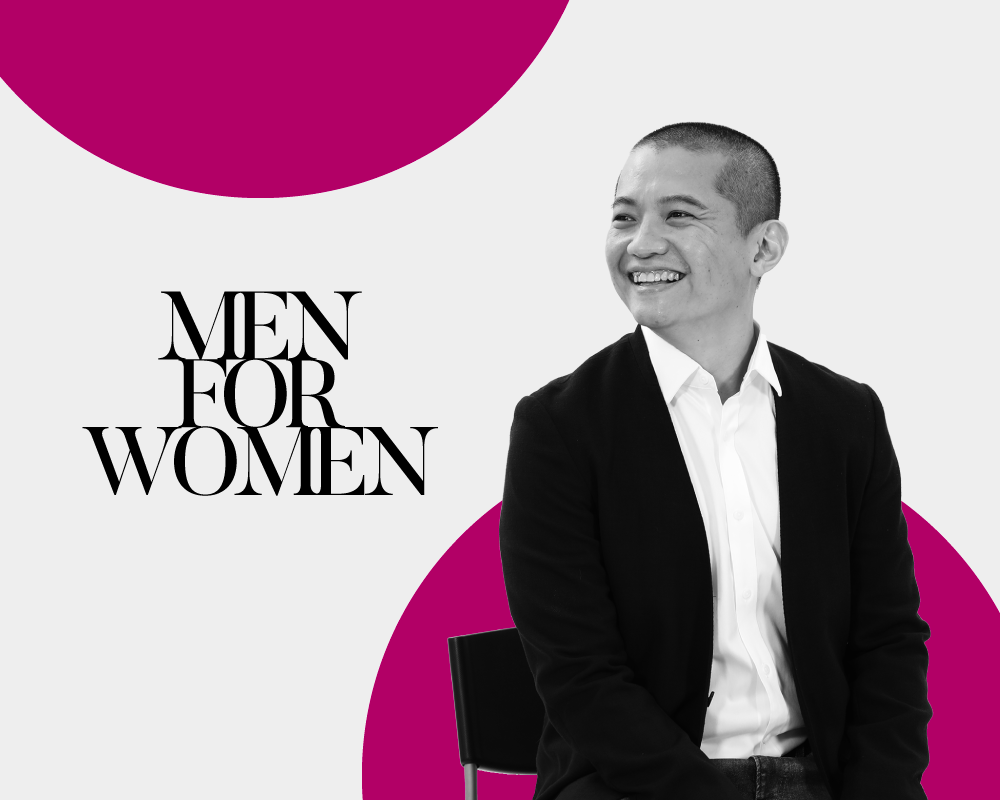What role do men have in the fight for women’s empowerment and gender equality? How can males participate in the uphill climb towards better female representation? Why is male allyship important? To answer these questions this International Women’s Day, we ask three male advocates what being an ally looks like for them.
As Country General Manager at Carsome Certified, Alan Cheah’s work revolves around reshaping preconceived notions. “When I joined, I was tasked with changing the landscape of how people viewed pre-owned vehicles,” he shares.
By developing a seamless end-to-end user experience and offering greater value for customers, he and his team are steadily shifting general perceptions about purchasing pre-owned vehicles. “Things are not what they used to be. You’re no longer faced with the stigma and the challenges that you would face in the past.”
In a similar way, Alan has made it a conscious goal to change the landscape of beliefs and mindsets that play into existing gender inequalities. His advocacy for women’s empowerment stems from a deep passion for helping others achieve personal growth.
He expands, “How can we develop ourselves to become better human beings? How can we up our game to become better contributors to society and the community as much as possible? I think having the right mindset is key.”
Rooted in equality
Growing up in a family where women are thoroughly empowered and regarded with equal respect, Alan’s view of equality was formed at a young age. “I was born and raised in a family that celebrates all achievements, regardless of whether you are a grandson or granddaughter.”
He adds, “I have a lot more aunties than I do uncles, and it helps that a lot of my aunties and uncles are really successful people. They’ve all built businesses on their own and achieved amazing outcomes in their lives.”
Having been brought up with the ingrained belief that there was no limit to what anyone could achieve regardless of gender, he was confronted with a stark realisation as he stepped out into the working world. It became clear that the values of equality in his family weren’t necessarily reflected outside of it.
 He recalls, “That’s when the seed started growing stronger. That’s why today I constantly focus on how I can create more opportunities and reframe the lens of bias that people might see through.”
He recalls, “That’s when the seed started growing stronger. That’s why today I constantly focus on how I can create more opportunities and reframe the lens of bias that people might see through.”
For Alan, gender equality boils down to having freedom of choice. “What it means is to give the same options to all genders, so they can make their decision without any expectation forced upon them.”
“As you grow older, you realise that as a society we can either step further and further away, or strive to get closer and closer to the right path, and you start thinking, ‘There must be something we can do to bring change to the workplace and society’.”
Equality in the office
Throughout his career, Alan rarely thought twice about hiring qualified female candidates in what most would consider a male-dominated industry.
“I guess that’s part of the stereotype that we’re going after,” he says of the automatic association of cars with men. “I’m consciously trying to challenge myself to make sure that I’m giving equal valuation or opportunity to everyone we interview.”
At the end of the day, it comes down to how passionate a person is about bringing growth and making an impact in the position, not their immutable characteristics.
While Alan notes that there’s still a lot to be learned about gender equality and the most effective ways to achieve it, it hasn’t stopped him from taking practical, everyday steps at work.
 “There’s no hard and fast rule,” he says, but offers an example in his approach to running meetings and general communication, in which he always makes an effort to highlight a team member’s accomplishments and bring clarity and attention to their abilities.
“There’s no hard and fast rule,” he says, but offers an example in his approach to running meetings and general communication, in which he always makes an effort to highlight a team member’s accomplishments and bring clarity and attention to their abilities.
Increasing visibly for capable female co-workers can make a substantial difference. “When we get invited for speaking engagements, we’ll take a step back and encourage the female team members to go for it instead. I find that helps a lot, because it builds confidence and experience, which then builds momentum, and the team member will just take it and run with it,” he explains.
An active effort is also made to open the door for female colleagues to be involved in interesting or important projects, giving them an opportunity to contribute their skills and perspectives. Finally, he says that open discussion on the issue is key, particularly for male allies who are in a position to speak up about it in conversations, discussions, panels, forums, and within their sphere of influence.
From the top down
Alan asserts that change in the company culture can start from the top and trickle down throughout the organisation. “As you foster this kind of mindset going forward, the ones reporting to you will have similar mindsets,” he says.
While such gestures, initiatives and attitudes can seem small and inconsequential, he believes they have the power to effect significant change.
“If there’s equality in the workplace where a woman feels empowered and confident that they’re able to contribute to the company, they’re then empowered to better contribute to their homes, their communities, and society,” he elaborates. “The ripples will turn into waves, and the waves will turn into a tsunami.”







